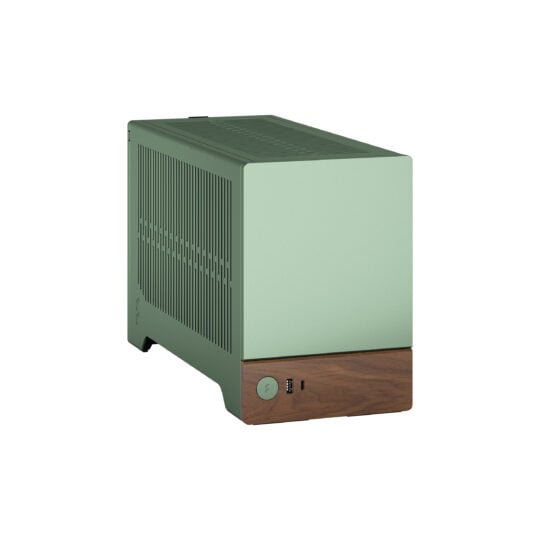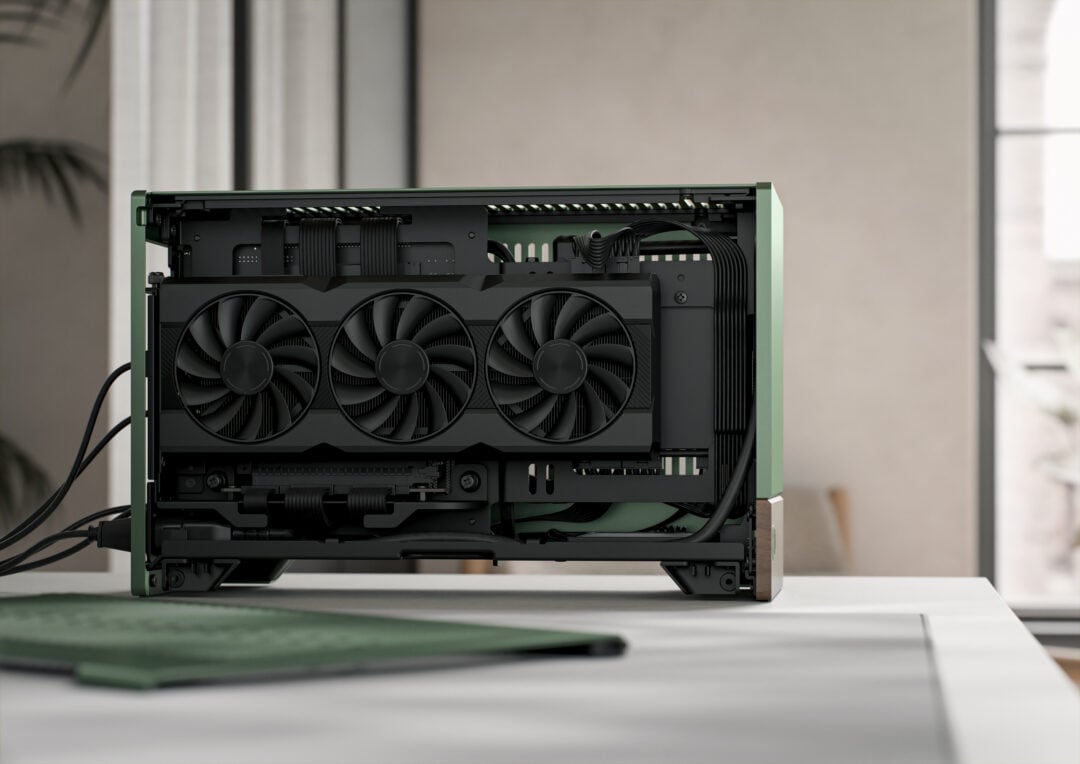-
• #9002
ProRes is not a lossless codec. ‘Visually lossless’ is a stupid term that gets bandied about, which is bollocks.
The ‘Media Engine’ in newer Apple Silicon is so good, I wouldn’t use anything else for video editing, especially in ProRes.
-
• #9003
Not pc tech really but I was wondering where the best place to ask this question was. Hope it’s okay!
Just got a dell XPS as my personal laptop as I use a windows machine for work every day so I’m more used to that than the Mac I’ve had for 5/6 years. I relied on apples own AV/security and all that jazz. Is there any AV or security software I should really use on this new laptop? what do I need? Thanks very much -
• #9004
Reckon the consensus these days is that Windows AV is perfectly adequate.
Just make sure everything's turned on and up to date by opening the start menu and searching for 'security'.
-
• #9005
Is there any AV or security software I should really use on this new laptop? what do I need? Thanks very much
Just Microsoft Defender which is built in.
Better than AV is "don't open email attachments you didn't expect to receive".
-
• #9006
I'm looking to upgrade my RAM, I currently have 16GB and I've really noticed things starting to chug along recently, especially with loads of tabs open in Edge, maybe it's all the AI stuff they've crammed into it? It seemed so lean when I first switched to it.
Anyhow, I'm wondering whether to go 32GB or 64GB, would 64GB be overkill?
I'm running WSL all the time, VSCode, Docker, loads of browser tabs, Affinity Designer and an increasing amount of background stuff, Spotify, Discord etc.
-
• #9007
You can never have too much memory. My new box has 64Gb. Haven't actually used it yet, but 64Gb should provide a degree of future-proofing.
-
• #9008
The only downside to lots of RAM is that it slows down waking from hibernation, as all of that it has to be copied from disk to RAM. This is mitigated by having a fast SSD.
Oh and also the time taken to perform a RAM check on boot up might add a second or two. But on a Windows length boot up time you'd hardly notice such a thing. On my circa 7s Linux boot time it is quite a proportion.
-
• #9009
My first x86 PC: "why would anyone ever need more than 16MB RAM?"
-
• #9010
I have 128GB RAM, so I thought I'd check as I'm in the middle of a workday and everything I ever need is open... I'm using 17GB.
32GB would be enough for zero contention, 64GB would be overkill... truly then, 128GB is just setting money on fire for no real benefit.
-
• #9011
Yeah, I only ever cut into my 32Gb in any serious way if I have a VM open. And only then if it's a Hadoop instance.
-
• #9012
I'm doing a chunk of work at the moment that occasionally takes me >32GB on my dev machine (which has 64GB) so I'm glad I didn't cheap out on that. 32GB->64GB isn't exactly £££ (it's what? ~£70?). If I ever get close to needing more than 64GB then I can just upgrade the motherboard and slap in another 32GB or 64GB.
My main workstation (a laptop) currently sits at ~18GB (which is fine as it has 32GB), but a large chunk of that remaining 14GB is given over to caching frequently used files (and memory is faster than NVMe, which is faster than bog standard SSD, which is considerably faster than spinning rust).
The only spinning rust I have is in the NAS.
Indeed I was surprised when I got my new dev box as it's a medium sized tower that's pretty much empty. Motherboard, RAM, NVMe are all tiny, and there's just a big chunky CPU cooler and a bunch of fans.
1 Attachment
-
• #9013
Have you checked in the Task Manager how much RAM it's using when you feel it's slowing down?
-
• #9014
that's pretty much empty
Well, looks like you've put a Micro ATX motherboard in the standard, rather than mini version of that case (a Pop Air, isn't it?)
Here's my equivalent in the Pop Silent Mini case during construction:
1 Attachment
-
• #9015
Well, looks like you've put a Micro ATX motherboard in the standard (ATX) version of that case (a Pop Air, isn't it?)
Yup, good identification! Although that's just the build that Scan were offering. I didn't get to change the case.
It's more to do with the fact that there are no separate SSDs, HDDs or CD/DVDs anywhere or a separate GPU card.
I had thought of getting a similar spec in an Intel NUC type machine but a 16 core CPU in a small-form-factor PC can have cooling problems when pushed for long periods.
-
• #9016
GPUs are fucking massive now.
-
• #9017
Well, this has made me slightly more satisfied about the hassle of having bought all the parts and built it myself to minimise volume while reusing old bits. Even though it took about 2 months in small doses, and I still need to return RAM, having found out the hard way there is now 'AMD' RAM that doesn't really work on Intel.
-
• #9018
I had to remove 2x drive bays from my ATX case to fit my new GPU. The old one was triple fan also, but the new one is a good 4 cms longer.
-
• #9019
My case is huge, and the motherboard is standard ATX but really the case is just all air now.
I have a large GPU, but still it looks modest in the case.
The fans and heatsink on the CPU are the only thing that is really large... but then, the whole thing is totally silent as the fans barely kick in and all of the fans are huge so don't have to spin at high speed to offer effective cooling.
8 case / system fans, of which 2 are 180mm (huge!), and the other 6 are all 140mm (still big - this includes the 2 on the CPU cooler at this size).
The GPU has it's own 3 fans separate from this, but they only ever spin up if I play a game.
I have them all set to spin only when temp thresholds are met, and because of the case lighting making patterns on the walls I see that they go idle the majority of the day. Even the CPU ones go idle at times.
Cases are just huge air tanks nowadays, and it's nearly all just down to GPU size.
-
• #9020
Also on cases, I think this is an interesting direction for them:
https://www.fractal-design.com/products/cases/terra/terra/It is based around the constraint of the GPU size being the main driver of the case, and because CPU cooling is pretty good nowadays and M2 form factor for SSDs is so small, it really means you can get a powerful machine that can do gaming in a very modest form factor that is barely twice the size of the large GPUs on the market.


-
• #9021
Don't hate that at all.
Though I wonder about dust. My Corsair AirFlow is a chonker but superb at keeping dust out and air running through it. But the mesh does get very clogged (terrible hooverer, kid, cat, filthy individual etc)
-
• #9022
Wood tho...
-
• #9023
Is it worth fiddling around with Windows power settings to try and manage power usage on a Desktop PC? Or is that mostly just a fools errand
-
• #9024
What are you trying to achieve exactly?
Most power savings can be unlocked by modifying BIOS settings relating to CPU TDP, idle throttling, turbo profiles, memory clocks & timings etc.
-
• #9025
Power management on Windows is typically very good out of the box on the defaults, yeah you can squeeze a little more from it but it tends to surpass even Macs.
Beyond the obvious (dimming the screen of a laptop as a display brightly lit uses a high % of the power) the difference is not usually the power management settings, but what software is running. Windows can include a degree of bloat or convenience things, and the more software that is running the more the power is sapped.
For example, Edge browser is probably running in the background even if you're using Firefox or Chrome, and you need to start Edge and then go to
Settings > Systems and Performanceand then disableStartup boostandContinue running background extensions and apps when Microsoft Edge is closed... doing that stops one huge executable from loading when the OS starts and permanently running in the background.If you're going to go down any rabbit hole for improvements, using task manager to identify what is running and asking why it is running and doing something about it will yield far greater improvement than tweaking the power management settings whilst all of that stuff runs.
 ectoplasmosis
ectoplasmosis bobble
bobble Brun
Brun Velocio
Velocio Brommers
Brommers mashton
mashton NotThamesWater
NotThamesWater Greenbank
Greenbank
 sohi
sohi chez_jay
chez_jay
 frankenbike
frankenbike ELbowloh
ELbowloh CYOA
CYOA branwen
branwen @PoppaToppa
@PoppaToppa
I've heard you say this before and it checks out, pre-rendering to pro-res was pretty slow on the last project I worked with. But is there any equivalent option for PC? A lossless video codec capable of hardware acceleration, or is the only option to get a Mac purely for editing?